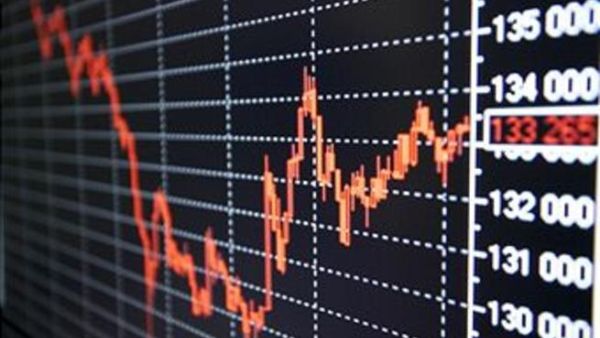Regional uprisings and lackluster economic growth in Lebanon are likely to continue weighing heavily on Lebanese stocks this week, after the bourse performed dismally last week, analysts told The Daily Star.“The decline in the stock market is a normal reflection of the weakness in the Lebanese economy where real GDP growth projections have been revised downward several times this year. There is also a role for risk aversion related to political instability and the regional turmoil,” said Salim Chahine, associate professor of finance at the American University of Beirut in an interview with The Daily Star.
Despite earnings results, Beirut stocks remained both an unpopular trading choice for investors and a drag on portfolios during the first week of November. The BLOM Stock Index added one more week to its nine month legacy of decline in 2011, shedding 1.05 percent to 1,187.46 points during the five trading days ahead of Eid al-Adha. The break below the 1,200 points level effectively erases all the market’s gains following the June 2009 parliamentary elections and opens the door to further declines. Volumes picked up slightly by 4.5 percent to 400,244 shares during the week, but instead of breathing life into the Beirut Stock Exchange, the still marginal activity erased $100 million in market capitalization to close on Friday at $10.38 billion.
“As long as the regional turmoil and the impact on the Lebanese economy persist, the stock market will likely continue to decline,” said Chahine. In particular, Syrian unrest has led to declines in Lebanon’s tourist numbers arriving by car from the GCC, and exports have declined sharply, prompting many to directly link Lebanon’s economic growth and stock market performance in coming months to developments in Syria. Joe Sarrouh, adviser to the chairman of Fransabank, agreed that both political tension and an economic slowdown were dragging the Beirut Stock Exchange downward, but added these were not the only factors behind the fall of the bourse.
“The Beirut Stock Exchange lacks depth and wits,” he said, adding that as long as there is insufficient liquidity in the market, the bourse will continue to perform poorly. “Trading in Beirut stocks traditionallyonly has one trend at a time: either sell or buy,” he said, adding that the current trend was to offload stocks. Trailing the market last week was the exchange’s heavyweight stock Solidere A which tumbled 2.52 percent to $14.3 followed by Bank Byblos at 2.47 percent. At the start of the week, the latter reported an 8.6 percent year-over-year drop in net profit to $44 million in the third quarter of 2011, but said its nine month performance remained 6.2 percent ahead of 2010.
Byblos’s earnings, although not surprising given the slowdown in the domestic market and the turmoil in neighboring Syria where the bank maintains major operations, still disappointed some investors and by close of business on Friday, there were 2.6 times more sellers than buyers of Byblos shares.
“Since the events started in Egypt, we were all expecting bank profits to be adversely affected, and that’s why you see a continuous decline in stock prices and not a sharp drop,” said Chahine.
In fact, the majority of stocks held large volumes of sell orders relative to buy orders as of market close Friday, including Banque BEMO with 10,000 shares in line for a sale at 2 percent below the market price with no buy orders. On the other hand, bid-ask volumes of Solidere shares were balanced on the buy and sell side while investors were lined up to purchase Bank Audi and Ciment Blancs shares albeit at discounts to last prices.
Asked about a possible role for the central bank in supporting a market down 20 percent in 2011 to date, Chahine said that “declining interest rates, already extremely low relative to where they should be, would normally provide excellent support to the stock exchange. The fundamentals of the banks are very strong, so I don’t see what the central bank can do.” Instead, both Chahine and Sarrouh advocated long-term measures aimed at promoting liquidity on the Beirut Stock Exchange.








